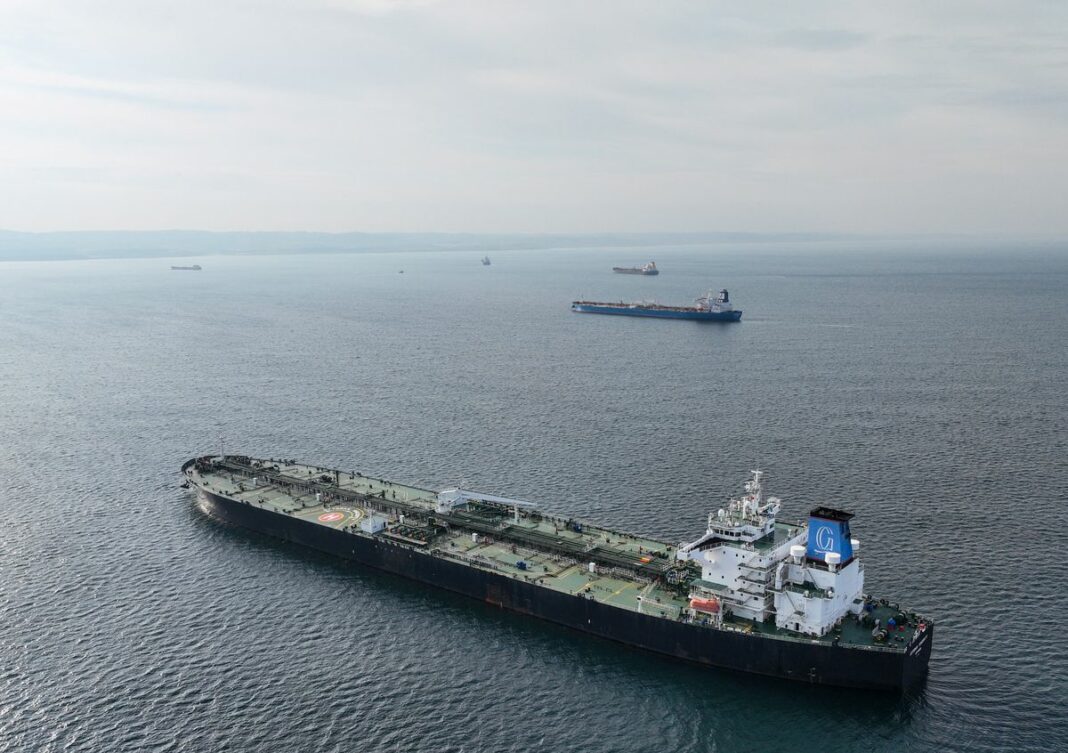« Ankara’s standoff with international insurers, which has created a line of crude oil tankers near the Turkish straits, ends with agreed wording on an insurance letter demanded by Turkey » reports Nazlan Ertan in Al-Monitor.
The Turkish maritime authority and Western insurers announced a deal Tuesday to end the logjam that left millions of barrels of oil waiting to enter one of the world’s most important and narrowest transit routes.
Turkey’s maritime authority said Ankara’s new regulation requiring crude oil tankers to present an insurance confirmation letter before transiting Turkish straits has been accepted by Western insurers.
Norwegian ship insurer Gard announced on its website that ships carrying crude oil cargoes could continue their voyages through Turkish-controlled waters after « significant engagement » between Turkey and the International Group, which provides prevention and indemnity insurance to 90% of the shipping industry.
The US, EU, and UK diplomats were also involved in finalizing the deal. Last week, US deputy Treasury secretary Wally Adeyemo took up the issue with Sedat Onal, Turkey’s deputy foreign minister.
Of the 26 crude oil tankers that arrived at the Bosporus, 22 had presented the letter required by Turkey, and 19 had already transited the straits, the Turkish statement said. As of Tuesday afternoon, four ships are still awaiting insurance confirmation letters.
The deal comes after a high-profile standoff on the passage of oil tankers through the Turkish Bosporus and Dardanelles following the imposition of the price cap on Russian oil by G-7 and the European Union. The cap bars ships carrying Russian oil from accessing insurance and other services from European providers unless the oil is sold for $60 a barrel or less.
Turkey, which feared accidents or oil spills involving uninsured vessels, issued a notice warning that an accident involving a crude tanker would have “catastrophic consequences,” including the closure of the strategically important waterways for days.
Western insurance companies initially balked at the idea, saying the new regulations would mean they would have to provide cover even if the ship violated the sanctions.
Washington also expressed frustration with the decision, targeting vessels carrying Russian and Kazakh crude oil. “We’ve been in touch with Turkey about how the price cap only applies to Russian oil and explained that the cap doesn’t necessitate additional checks on ships passing through Turkish waters,” a spokesperson for the US Treasury said last week. “Our understanding is that virtually all delayed tankers are not carrying oil from Russia and are not affected by the cap.”
Last Friday, about 20 tankers waited in the Black Sea as they scrambled to present the necessary documents. According to the Tribeca shipping agency, the average waiting time peaked at above six days last week. Western officials fumed at Ankara, stressing there was no valid environmental or health or safety reason to block the traffic.
Mithat Rende, Turkey’s former envoy to OECD who spent most of his career on energy diplomacy, had warned before the price cap that Russia’s newly acquired aging tankers to circumvent Western sanctions might pose great danger to the maritime safety and marine environment in the Turkish straits.
“The new requirement does not distinguish between the vessel’s country of origin,” Rende told Al-Monitor. “It is about the safety of the Turkish straits, which are strategic chokepoints with sharp turns and strong currents. We have at stake is the safety and the marine life of the straits and the security of a historical metropolis with a 16 million population.”
White House Press Secretary Karine Jean Pierre said on Friday that a resolution was approaching, and on Saturday, Turkish officials sent out a sample letter that would satisfy their demands, which industry sources said were close to what was already in use by some Western insurers. Reuters reported that the clause that insurers would not bear liability in all circumstances had been changed.
The bottleneck had little impact on the global oil market, because most Western countries no longer purchase Russian crude. An analysis by Bloomberg showed that Bulgaria was the only European country to have imported Russian oil this month.
Al-Monitor, December 13, 2022, Nazlan Ertan, Photo/Mehmet Emin Caliskan/Reuters

